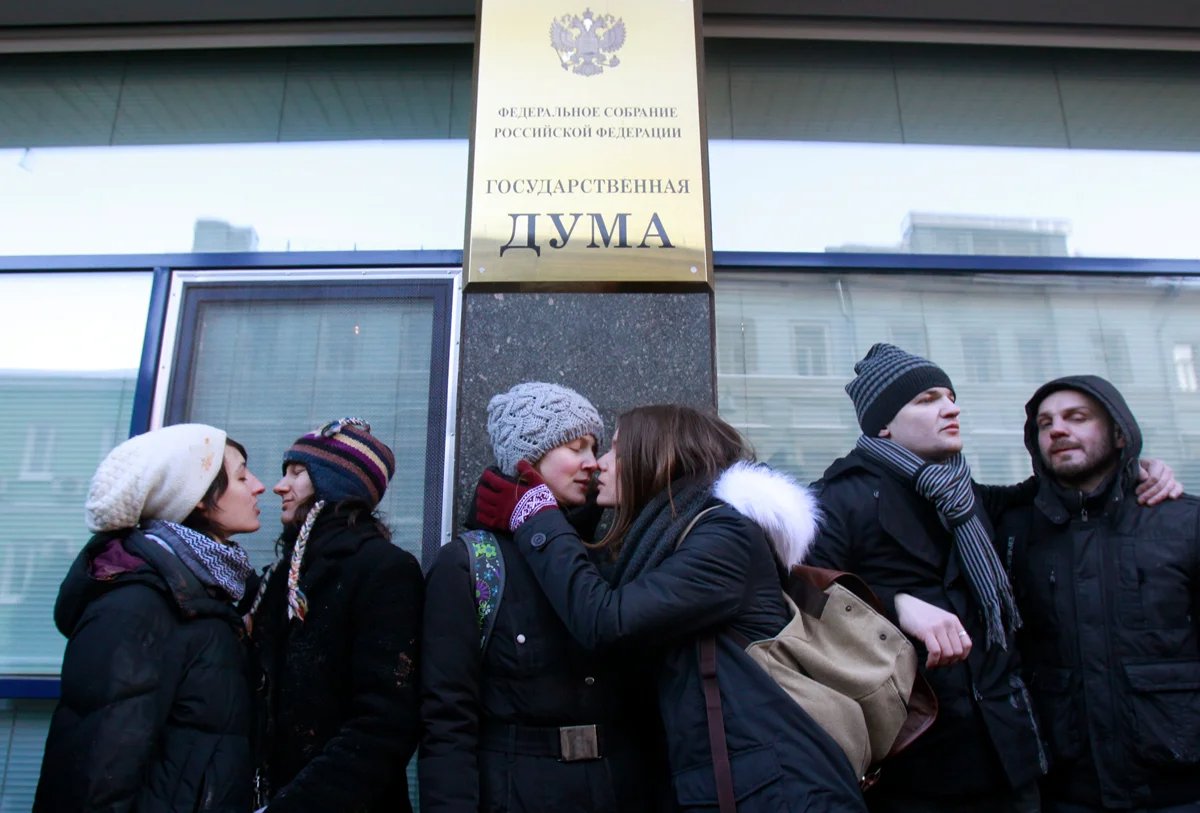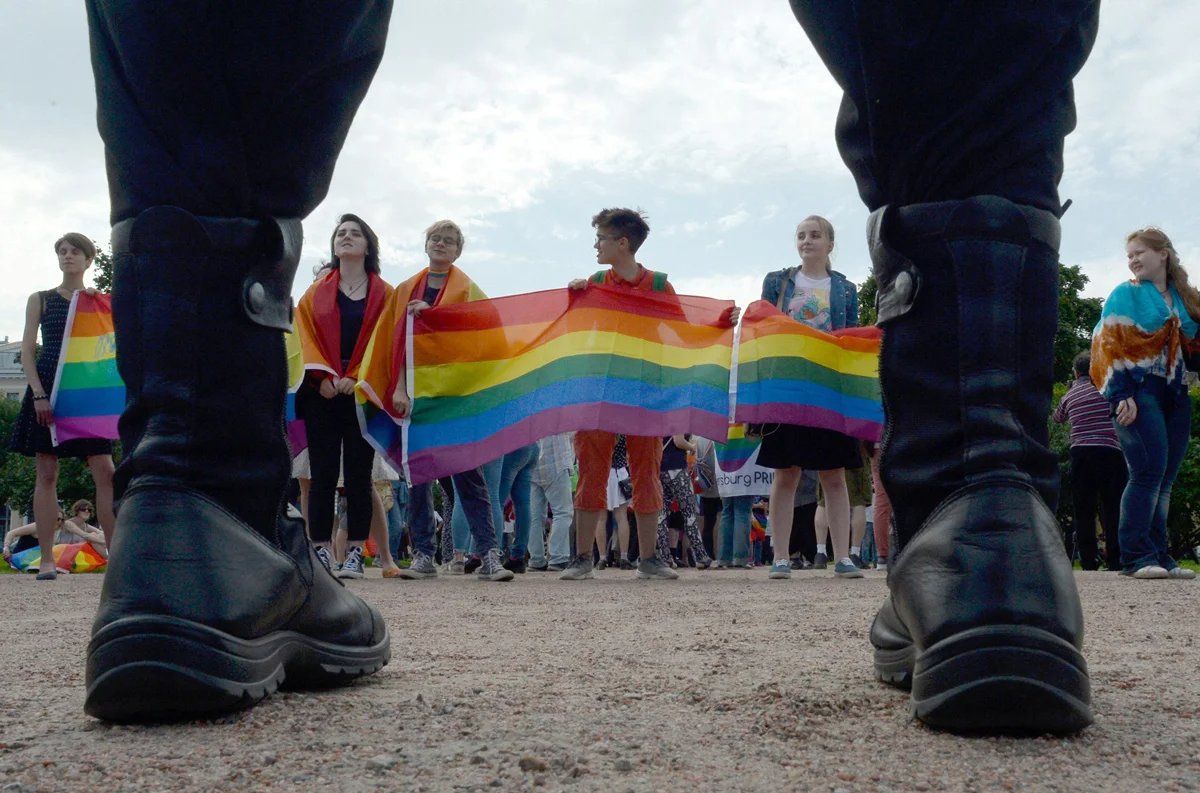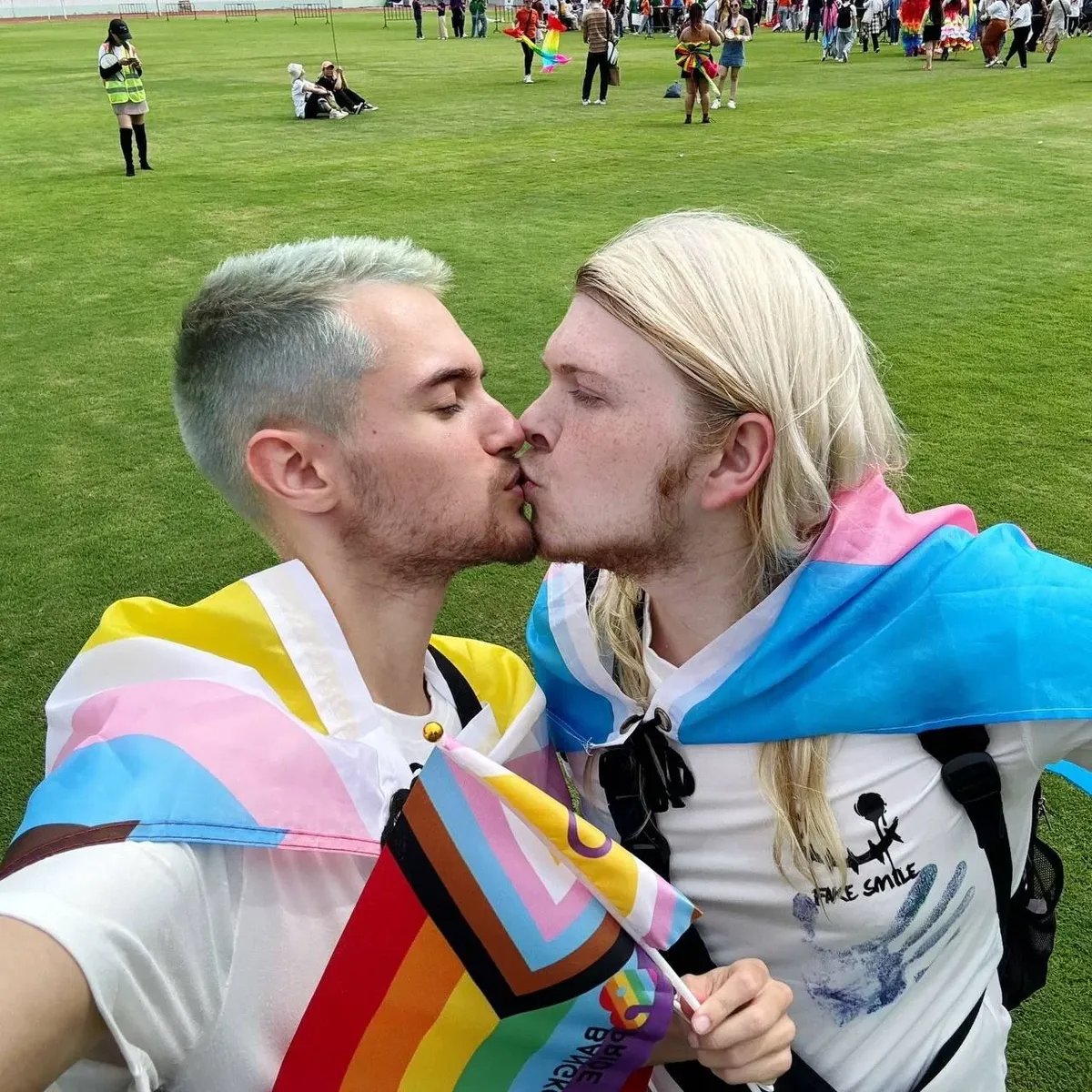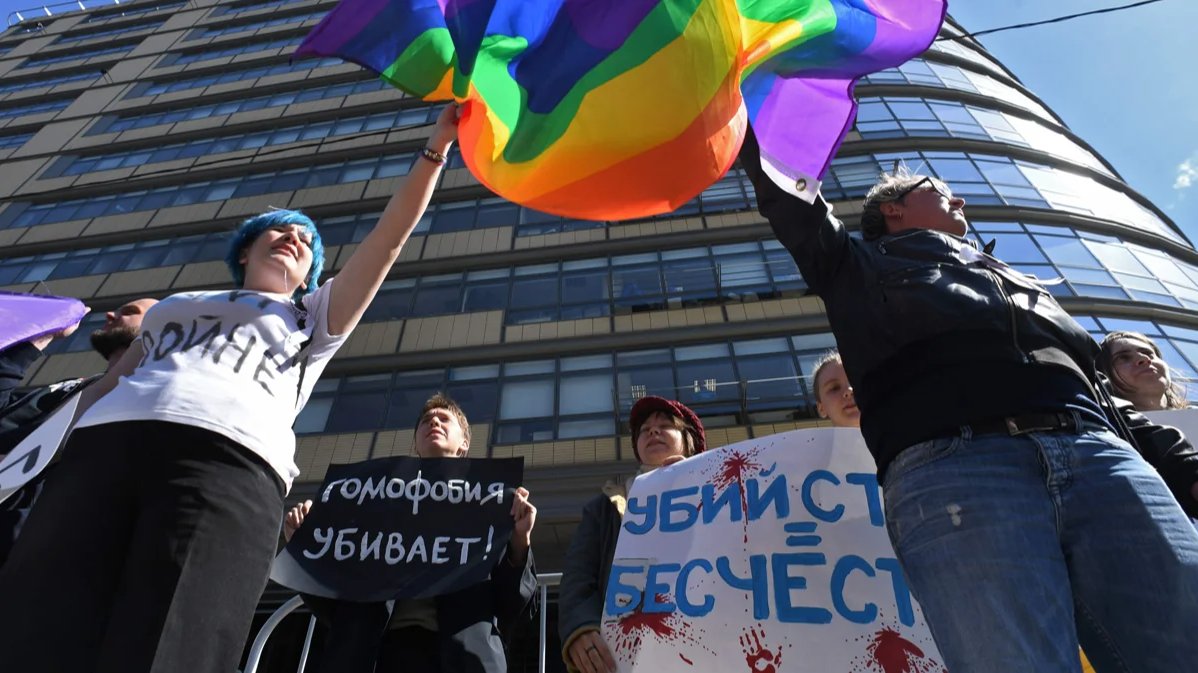When Vladimir Putin signed a law prohibiting gender reassignment surgery and making it impossible to legally switch gender on official documents, it came as yet another severe blow to the transgender community in Russia, whose members were already subject to discrimination, threats of violence, legal troubles and barriers to gender-affirming care.
Queer people in Russia experience near-constant violence and prejudice in a country that provides virtually no protection for LGBT rights of any kind. In 2023, one in three transgender Russians said they had been threatened with physical violence.
According to a joint study conducted by the LGBT rights advocacy groups Coming Out and the Sphere Foundation, transgender individuals are more likely not to discuss their identity with their friends and family in fear of violent retaliation than to share their identities with those in their social circles.
Novaya Gazeta Europe asked a trans person and a non-binary person about their experiences over the past year and described what the Russian ban has meant to them personally.
Dari, transgender woman, 28 years old, southern Russia
From a young age, Dari felt like a girl. She used female pronouns to refer to herself, wanted to participate in traditionally feminine activities and to wear female clothing. Despite her certainty that her gender identity did not align with her gender assigned at birth, Dari understood that the world she grew up in was quite intolerant of her gender expression.
“From an early age, I realised that you can’t talk about this, you can’t tell anyone because it’s wrong. I carried this feeling with me almost all my life,” Dari told Novaya Gazeta Europe.
Dari said she suffered from an intense feeling of internalised homophobia and transphobia for many years in her youth. Throughout her adolescence, Dari tried to conform to what was expected of her by aligning herself with a traditionally masculine lifestyle.
“At some point in my life, I considered myself gay or bisexual. Internal transphobia was even stronger. Admitting to myself that I was a trans woman was even worse than admitting that I was gay,” she said.
The shame and emotional turmoil Dari felt about her identity culminated in a suicide attempt. For Dari, her attempted suicide was a life-changing moment that pushed her to come out as a transgender woman to a few friends and begin her transition.
In February 2023, Dari was evaluated by a psychiatrist and received a diagnosis of “transsexualism” which, at the time, was a legal prerequisite for transgender people to access gender-affirming care.
Many physicians who are able to administer gender-affirming care in Russia fear that by doing so they may lose their medical licence or face legal trouble.
After Putin signed an anti-transgender law in July 2023, it became far more difficult to receive hormone treatment. Despite these barriers, Dari began to use injectable hormones instead of expensive tablet medication. Sold under the table, injectable hormone treatments in Russia are more affordable but also far more dangerous as the hormone is not usually produced by a medical professional.
“Injections are sold illegally. There are people who produce the hormone at home and then send it to their friends. I don’t know exactly how they do it, it seems to be based on some kind of oil,” Dari said.

Opponents of the law banning “LGBT propaganda” kiss during a protest outside the State Duma building in Moscow, January 22, 2013. Sergey Karpukhin / Reuters / Scanpix / LETA
Dari continued to informally communicate with her endocrinologist, who, though not recommending Dari take homemade medication and warning her she would be taking it at her own risk, conceded that the dosage and composition of Dari’s injection was correct.
Many physicians who are able to administer gender-affirming care in Russia fear that by doing so they may lose their medical licence or face legal trouble. The consequent lack of care has forced already vulnerable patients to seek dangerous, expensive and scarce alternatives.
Since receiving hormone treatment, Dari’s appearance has drastically changed. However, she is still identified as male in all of her official documents, which has made finding a job incredibly difficult.
“I can’t find any typical male work, because they’ll just beat me up there. But they won’t hire me as a woman either,” Dari said, adding that she hopes to be able to leave Russia soon, having understood that emigration is the only way out of her current situation.

Pride participants in St. Petersburg hold a rainbow flag as police stand opposite in the background, August 12, 2017. Photo: Olga Maltseva / AFP / Scanpix / LETA
Roman, non-binary person, 25 years old, Thailand
Roman is a non-binary graduate student in psychology at St. Petersburg State University who is currently working on a dissertation focused on the formation of identity among transgender people.
“My scientific advisor and I have already been refused publication by three journals, plus I’m not allowed to take the exam,” Roman says of the challenges he’s faced attempting to publish his academic research.
The LGBT censorship at Roman’s university in St. Petersburg is typical of that in many other educational institutions in Russia. Roman recounted how “ideological purges” related to the ban on “LGBT propaganda” have affected the subject material universities are allowed to teach across the country. Scholarship in academic journals and magazines has also been impacted.
“There is a Moscow magazine that refuses to accept work if the word ‘gender’ is used at all,” Roman said.
Before Russia’s “LGBT propaganda” law came into force, Roman described St. Petersburg as a relatively comfortable and safe place to study and says that he was even able to publish in academic journals, give lectures and participate in LGBT activism.
When the law passed, Roman quickly understood that everything would change. “I was just giving a lecture and saw the news on my phone. I then told the students that they were most likely the last group to listen to lectures about queerness, sexuality and so on.”

Roman and his partner. From Roman’s personal archive.
After the Russian Supreme Court recognised “the international LGBT movement” as an extremist organisation, Roman and his partner decided to leave Russia. They now live temporarily in Thailand while they wait for an EU visa.
In Russia today, nearly every LGBT person faces discrimination, violence and amid a complete absence of legal protection. Although Dari and Roman’s circumstances vary considerably, both have described how their ability to live safely in Russia has been adversely affected by the extremely negative and discriminatory political rhetoric of recent years. Unfortunately, as the rights of LGBT Russians continue to recede, it remains unlikely that the situation for queer people in Russia will improve any time soon.
Join us in rebuilding Novaya Gazeta Europe
The Russian government has banned independent media. We were forced to leave our country in order to keep doing our job, telling our readers about what is going on Russia, Ukraine and Europe.
We will continue fighting against warfare and dictatorship. We believe that freedom of speech is the most efficient antidote against tyranny. Support us financially to help us fight for peace and freedom.
By clicking the Support button, you agree to the processing of your personal data.
To cancel a regular donation, please write to [email protected]

